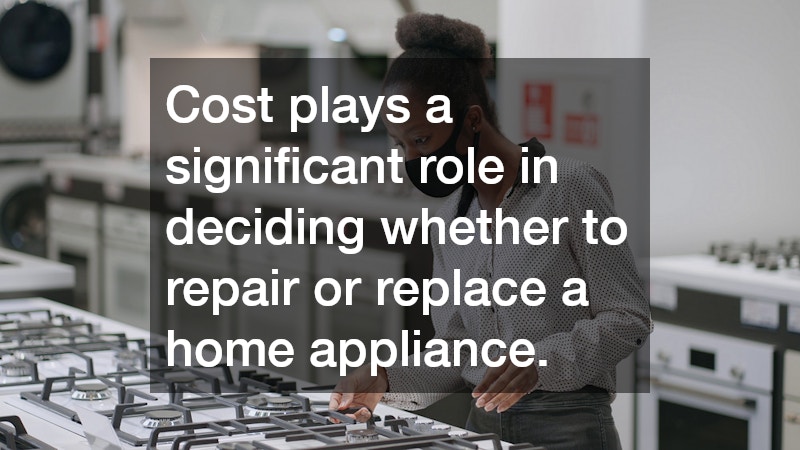When deciding whether to repair or replace an appliance, it’s crucial to consider its age and expected lifespan. Most appliances have a general lifespan between 10 to 15 years. However, this can vary depending on usage, maintenance, and the brand’s quality. Understanding the timeline helps in making an informed decision, as older appliances might be less efficient. Your local discount appliance store can offer guidance on the typical lifespan of different appliances and might have replacement options available.
A refrigerator, for example, usually lasts about 13 years, while a dishwasher might endure for approximately 9 years. This doesn’t imply that every appliance will run smoothly until that age.
The efficiency and reliability might decrease well before then, leading to higher energy bills. Regular maintenance can prolong an appliance’s life, but past a certain point, repairs may cost more than they’re worth. Evaluating the appliance’s age against its performance is often the first step toward deciding between repair and replacement.
Another factor to consider is technological advancement, which significantly impacts older appliances. Newer models are designed to be more energy-efficient and environmentally friendly. This efficiency can translate to savings on utility bills, adding an essential factor in the decision-making process. Frequent repairs signal that it might be time to explore these newer options. Discount appliance stores often carry updated models with the latest technology at better prices, offering a glimpse into potential long-term savings.
Cost Analysis of Repairs Versus Replacement
Cost plays a significant role in deciding whether to repair or replace a home appliance. Repair costs vary depending on the appliance and problem complexity, but they can quickly add up with older models. Frequent minor repairs might seem affordable initially, but their cumulative cost can exceed the appliance’s value. According to industry experts, if the repair costs are more than 50% of the price of a new appliance, it is usually more economical to go for replacement. For budget-conscious shoppers, a discount appliance store may have viable replacements that align with your financial plans.
Beyond initial expenses, ongoing energy costs are another consideration. Older appliances tend to be less energy-efficient, consuming more power to function at the same level as newer models. This inefficiency results in higher electricity bills, essentially costing more over time. By evaluating the annual energy usage, you can estimate potential savings with a newer, energy-efficient model. Your local discount appliance store may also provide energy ratings and operating costs to help customers make energy-conscious decisions.
In situations where budget constraints are pressing, and replacing an appliance outright seems daunting, repair might seem the obvious choice. Nevertheless, think long-term when evaluating costs. Some discount appliance stores provide financing options or refurbished models, which can be a cost-effective middle ground. Carefully weighing these factors can highlight the potential for substantial benefits when replacing an outdated unit. Investing wisely today can lead to significant savings tomorrow, as well as improved comfort and functionality.
Analyzing the Appliance’s Reliability and Performance
The reliability and performance of an appliance factor heavily into the repair-or-replace decision. An appliance that breaks down frequently is not only inconvenient but also signifies underlying issues. Consider how often the appliance fails and the impact on daily life. If an oven breaks down during family dinners or the washing machine during laundry day, these disruptions might suggest it’s time to consider replacements. Visiting a discount appliance store can provide insights into brands known for their reliability and performance, offering peace of mind for new purchases.
Performance degradation issues can vary dramatically across appliances, affecting everything from cooking to cleaning. An oven that takes longer to preheat or a dryer that needs multiple cycles for a single load are signs that efficiency is dropping. While repair can address immediate issues, persistent problems are indicative of systemic failures. Modern appliances bring enhanced features, such as smart thermostats or moisture sensors, which improve performance and user experience. Exploring options at a discount appliance store could reveal better models exceeding your current appliance’s performance level.
Getting the opinions of professionals can help in deciding the best course of action. Technicians can provide insights into whether repairs will likely resolve persistent issues or if replacement is more advisable. It’s beneficial to seek multiple opinions, alongside visiting discount appliance stores for practical advice and options. While an appliance’s brand reputation plays into reliability, consumer reviews and in-store feedback can further illuminate the choice. Opt for a strategy that prioritizes dependability, ensuring long-term satisfaction with your home appliances.





